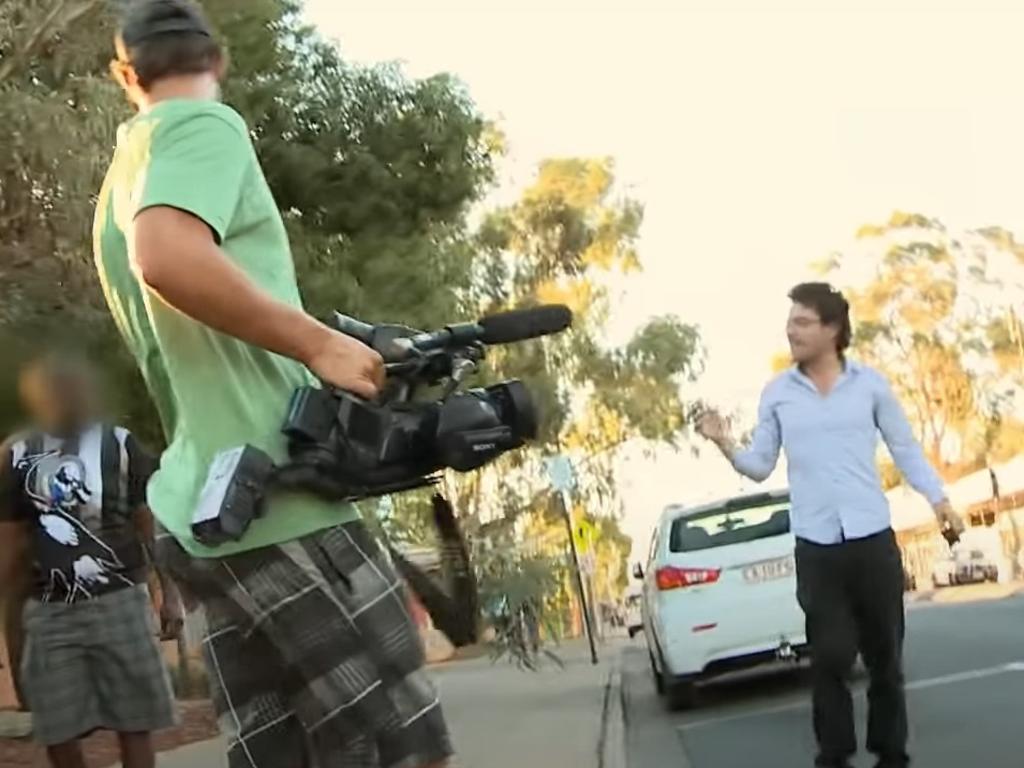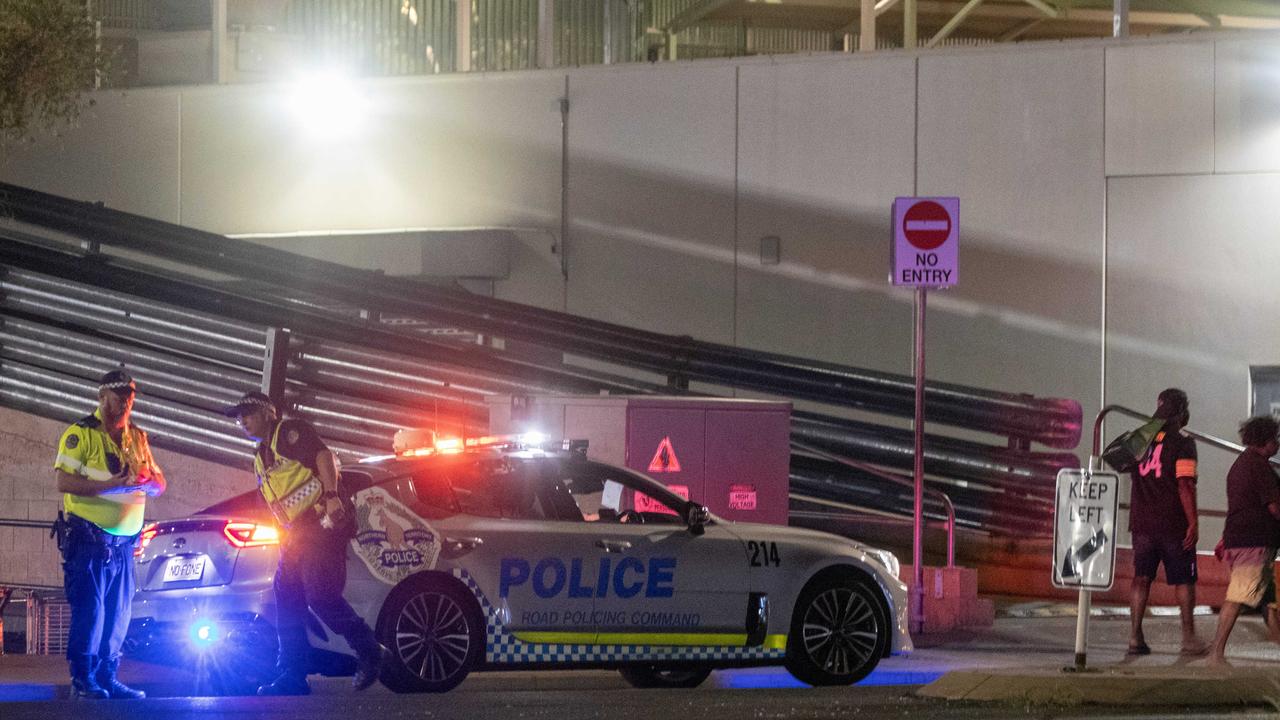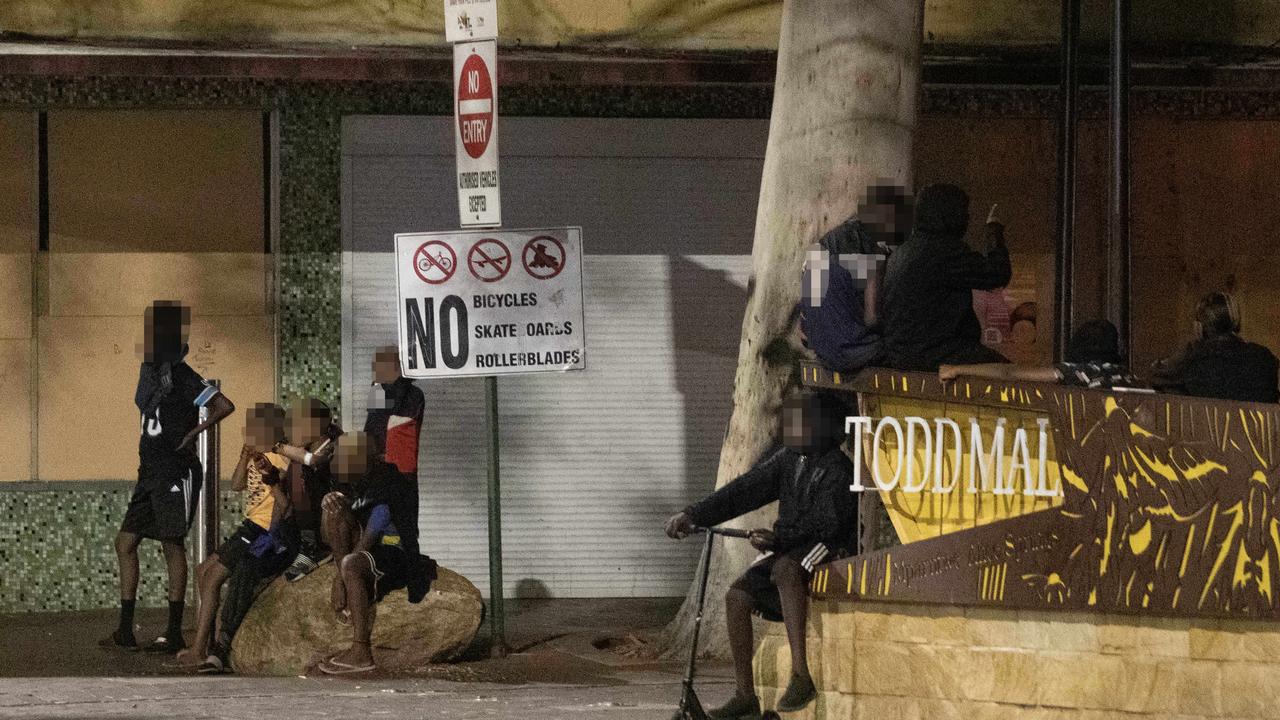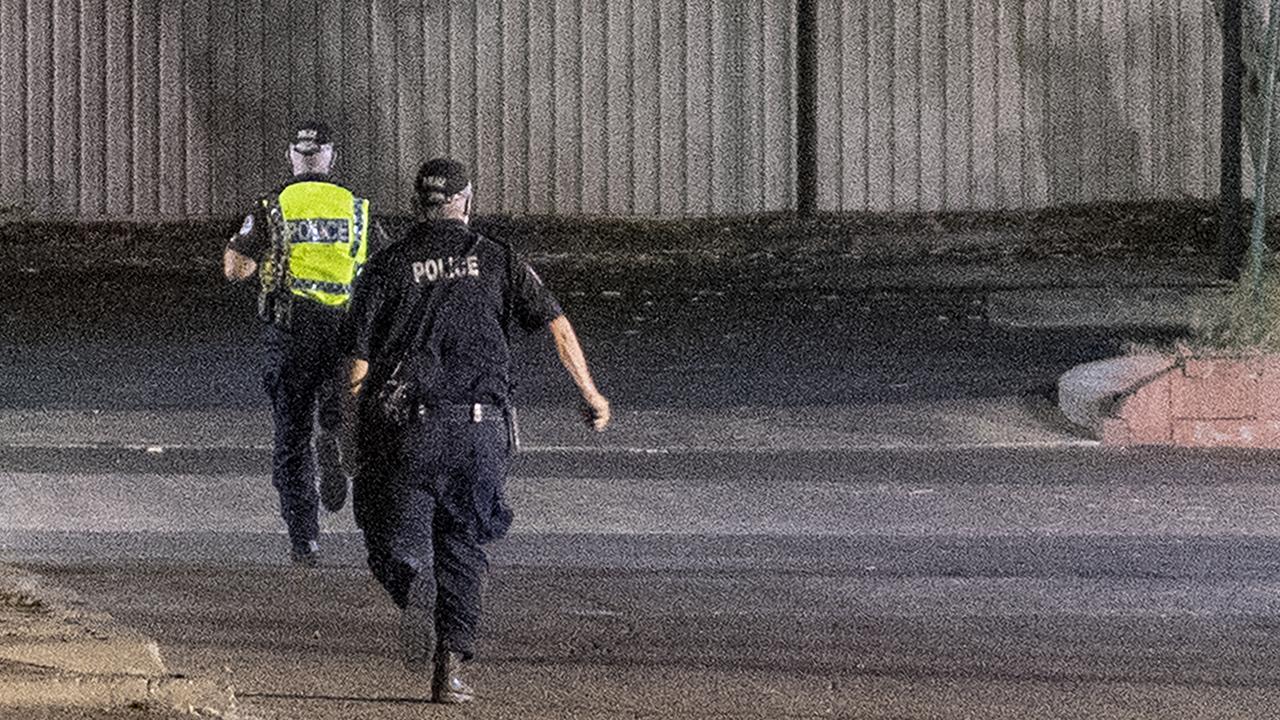Alice Springs needs more than just a booze ban and some cops
It’s in the grips of a catastrophic crisis and the grog ban looks set to return – but there’s an obvious reason it simply won’t work.
OPINION
I have been to Alice Springs twice in my life.
Once as a kid when my family was travelling around Australia, and I loved it.
And once as an adult when I was filming a doco series for the ABC in which we were attacked on the street and had rocks thrown at us, followed by a visit to the Indigenous town camps on a bus that would take all the kids to school.
I loved that second visit even more.
Despite all the drama and media attention on the rock-throwing incident, I often have to remind myself that it even happened. It has no hold on my memory.

But I remember the joy of sitting on that school bus full of young and excited and hopeful kids every single day. It is burnt into my soul forever, as much a part of me as my wife and kids and dog and cat and house and car and flesh and bones.
In particular I remember a girl — aged maybe six — who had the most beautiful smile and was excited by the minuscule circus of our visit. She sat with me and beamed about how much she loved school.
And rightly so. The school was amazing, full of songs and hope and learning, and — most importantly — food. If you’re hungry you can’t think about anything else. You don’t get a breakthrough without breakfast.
But this great light on the hill, as Ben Chifley would put it, also shone a light on dark places — namely the terrible living conditions from which these kids were picked up and to which they were inevitably returned.
The girl I sat with, and the others who crowded round, were the quickest, funniest and smartest kids I have ever seen. I hope they have gone on to extraordinary things. The stats say they have probably been consumed by a reality they never asked for nor deserved.

This is the true tragedy of the Alice Springs crisis. It was there when I visited a decade ago and my pointless feelings frankly did f**k all. It continued in the decade since across both Labor and Liberal governments, and it has now got even worse.
There are Aboriginal kids on the streets of Alice Springs picking fights, stealing stuff and vandalising property for a whole variety of reasons, but one is self-evident: It is a better option than being at home.
We need to fix this. Yes, send in the cops, send in the army, put in place booze bans. This is a brutally acute crisis that must be urgently addressed.

But if anyone is thinking any of this is somehow a permanent solution they might as well call in the cops to their own basement.
And this is where all the arguments against the Indigenous Voice to Parliament collapse in upon themselves.
Voice opponents say that the federal and NT governments were warned repeatedly by local Indigenous leaders not to repeal the grog bans but did so anyway.
They are right. So why the hell not back a plan to ensure those voices are heard?
Voice opponents say that Indigenous policy is dominated by a clique of elite inner-city activists.
They are right. So why the hell would they oppose a plan to focus on remote and regional Indigenous representation?
Voice opponents say everything we have done so far to try to close the gap has failed.
They are right. So why the hell are we not trying something different?

There are legitimate arguments for greater clarity of how the Voice might work and what it might look like. These will no doubt be advanced as the debate goes on.
But the truth is that most arguments against the Voice turn out to be arguments for it.
Sick of business as usual? Vote the Voice.
Sick of inner-city elites? Vote the Voice.
Want real Aboriginal representation? Vote the Voice.
Want an end to pointless whinging about Australia Day? Vote the Voice.
Want Indigenous accountability? Vote the Voice.
Want Indigenous self-determination? Vote the Voice.
At literally every level and on both sides of the political divide the Voice is a no-brainer. It gives First Nations people the most modest thing they have ever asked for and returns to them the carriage of their future.
It is both the most and the least we can do.






